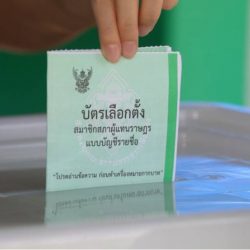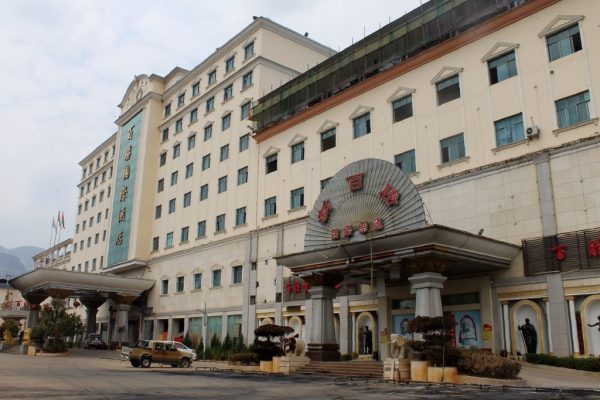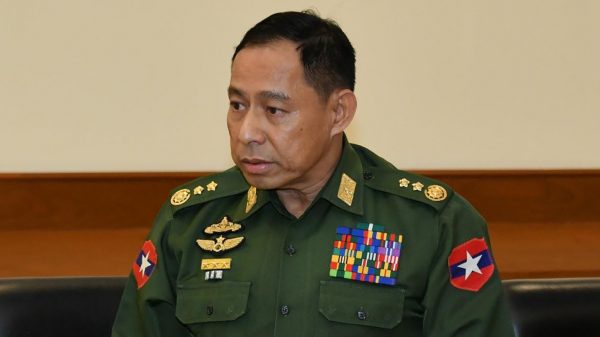New Thai government should avoid recklessness in Myanmar policy, say experts

The next Thai government should adjust its foreign policy to ease the crisis in strife-torn Myanmar but should implement such a policy cautiously, as the stakes for all parties, notably the two militaries, are very high, according to experts and diplomatic sources.
The leniency shown towards the Myanmar junta’s State Administration Council and the so-called “quiet diplomacy” adopted by the outgoing government under General Prayut Chan-o-cha needs to be changed drastically to revive Thailand’s international status, a Western diplomat said.
The new government should adopt a clear stance on the suppression of democracy and human rights violations along with the international community and ASEAN, he said on condition of anonymity.
Thailand has to voice its support for peace in Myanmar as well as promote joint economic development along the border of the two countries for mutual benefit, said Dulyapak Preecharush, Associate Professor of Asian Studies at Thammasat University.
However, the two leading parties in the coalition — Move Forward and Pheu Thai — who are likely to form the new government after the May 14 general election, need to smoothly synchronize their foreign policies towards military-ruled Myanmar. A memorandum of understanding (MoU) signed by the coalition partners has no specific platform for a solution to the crisis in the neighboring country.
The MoU signed last month by eight parties to form the new government simply said it would revive the leading roles of Thailand in ASEAN and maintain balance of power between Thailand and the superpowers.
Differences in the coalition
The two parties share the same goal for Thailand to speak louder and have a more significant role in ASEAN to help ease the conflict in Myanmar for lasting peace, but there are differences in details.
Move Forward has a clear and tough policy towards Myanmar. If the Move Forward leader becomes the head of government, a party source said it might allow Pheu Thai to take the position of foreign minister. “But we have to prevent a situation where the prime minister and the foreign minister speak differently on the same issue,” the source said.
Dulyapak said Pheu Thai’s policy to enhance Thailand’s international role in promoting peace and economic development was likely practical for the new government to deal with the situation in Myanmar.
“Move Forward’s tough stance might go well with some ASEAN members such as current chair Indonesia, Malaysia, and Singapore, but it could jeopardize relations between Bangkok and Nay Pyi Taw,” said Dulyapak, who is also the Deputy Director of the Institute of East Asia Studies at Thammasat.
“The game might change when Laos, which has close ties with Myanmar’s military government, takes the ASEAN chairmanship next year,” he said in an interview with Thai PBS World. “In this case, Pheu Thai’s policy looks more stable.”
Attacks and explosions reported in tightly controlled Yangon and Nay Pyi Taw
Humanitarian journey
Move Forward leader Pita Limjaroenrat said his policies on Myanmar would prioritize engaging with all stakeholders, focusing on human security considerations, including humanitarian and economic aspects. “These will be implemented with a view to achieving mutual peace and prosperity for Thailand, Myanmar, ASEAN, and beyond,” he said via his Twitter handle.
The new government — whoever takes the lead — should give priority to humanitarian assistance to Myanmar in accordance with the ASEAN five-point consensus, Dulyapak said. He warned that it needed proper management and coordination between Myanmar, ASEAN, and the international community since the military is de facto ruling the country.
The ASEAN five-point consensus was adopted in April 2021, but has yet to yield any result on immediately ending violence, promoting dialogue among all parties, having a special envoy facilitate the dialogue, providing humanitarian assistance, and having a special envoy visit Myanmar and meet all parties.
“The Myanmar military fears western influence and domestic interference. Any pressure on the military government might be counterproductive. They might not cooperate, but look for protection from other superpower countries instead,” he said.
Move Forward’s Pita said his government would start a humanitarian journey, especially with the Burma Act that was passed in the US Congress. “We can start that work with the international community to make sure that we have the right amount of pressure and incentives for people to resolve their conflict,” he was quoted as saying by Chiang Mai-based Irrawaddy News recently.
Military resistance
Pita’s statement prompted a reaction from the Deputy Commander of the Myanmar armed forces, Soe Win, that the regime needed to monitor the Thai-Myanmar border closely as the pro-West Move Forward Party would assist dissidents who the military deems terrorists.
The pro-West policy might also upset China, which has a strong influence over Myanmar, and also many other ethnic armed groups including Wa in Shan State, according to Dulyapak, who added, “I don’t want to see Thailand having a problem with China because of the Myanmar issue. It would not be good for our border security.”
The Thai military, which is on good terms with its Myanmar counterparts, might also have some problems. If border security was the case, the Thai military might have an excuse to ask for more weapons and support to boost its strength, the Thammasat scholar said, and noted that such a demand from the armed forces might also affect Move Forward’s plan to reform the military. If the demand cannot be met, the relations between the civilian government and the military might be in trouble, he said.
Initiate a forum for peace talks
If the Move Forward Party manages to form a coalition government and leads the foreign policy towards Myanmar, it would need to fine-tune its stance and policy with bureaucrats in the National Security Council and the Foreign Ministry, which oversaw policy implementation, he said.
The Western diplomat and Thammasat academic supported the new government, no matter under whose leadership, to seek more active roles in helping Myanmar achieve peace and reconciliation. Thailand could initiate an informal forum for all stakeholders, including representatives from the military government, National Unity Government, ethnic armed groups, and civil society organizations to have dialogue in conducive conditions.
Dulyapak suggested a piecemeal approach to conflict management, beginning with insensitive issues in order to bring all stakeholders on board before moving to essential peace talks.
By Thai PBS World’s Regional Desk






